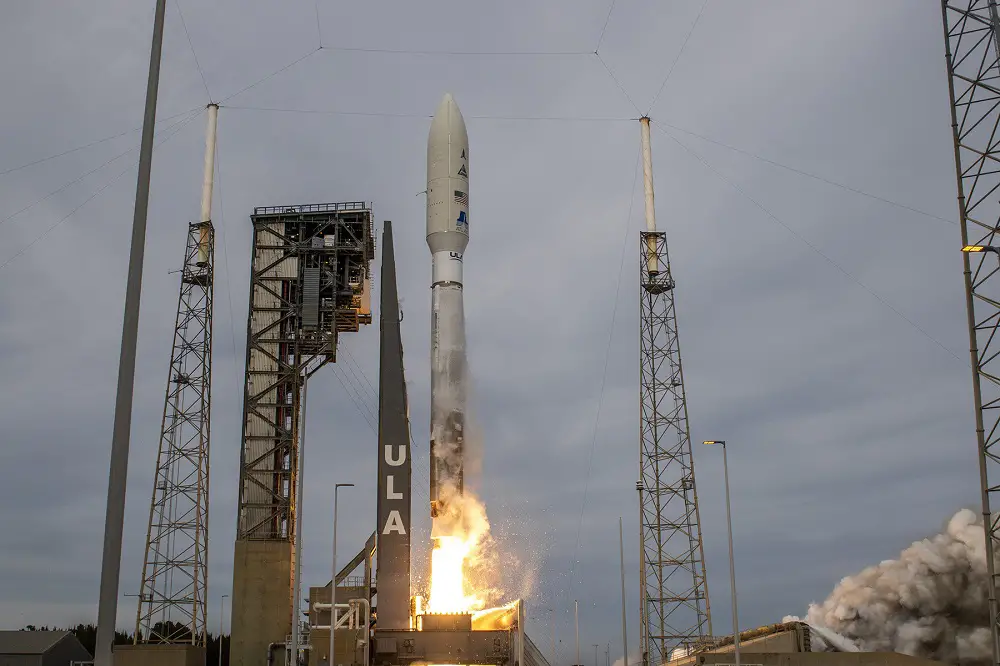A United Launch Alliance (ULA) Atlas V rocket carrying the USSF-8 mission for the U.S. Space Force’s Space Systems Command lifted off on Jan. 21 at 2:00 p.m. EST from Space Launch Complex-41 at Cape Canaveral Space Force Station. To date ULA has launched 148 times with 100 percent mission success. The mission launched on an Atlas V 511 configuration rocket, that included a 5-meter short payload fairing. The Atlas booster for this mission was powered by the RD AMROSS RD-180 engine. Aerojet Rocketdyne provided the RL10C-1 engine for the Centaur upper stage and Northrop Grumman provided the Graphite Epoxy Motor (GEM) 63 solid rocket booster.
“ULA continues to launch national security assets into highly complex orbits. The USSF-8 mission was successfully delivered to near-geosynchronous orbit after a nearly 7-hour mission,” said Gary Wentz, ULA vice president of Government and Commercial Programs. “We want to thank the U.S. Space Force and our mission partners for their teamwork for the successful launch and delivery to orbit.
This was the 91st launch of the Atlas V rocket. ULA’s next launch is the GOES-T mission for NASA, planned for Mar. 1, 2022, from Cape Canaveral Space Force Station, Fla. With more than a century of combined heritage, ULA is the nation’s most experienced and reliable launch service provider. ULA has successfully delivered more than 145 missions to orbit that aid meteorologists in tracking severe weather, unlock the mysteries of our solar system, provide critical capabilities for troops in the field, deliver cutting-edge commercial services and enable GPS navigation.
United Launch Alliance (ULA) is an American spacecraft launch service provider that manufactures and operates a number of rocket vehicles that are capable of launching spacecraft into orbits around Earth and to other bodies in the Solar System. The company, which is a joint venture between Lockheed Martin Space and Boeing Defense, Space & Security, was formed in December 2006. Launch customers of the United Launch Alliance include the Department of Defense (DoD), NASA, and other organizations. As of 2020, the company is developing the Vulcan Centaur, a successor to the Atlas V that includes some Delta IV technology. The maiden flight is planned to take place in 2022, launching Astrobotic Technology’s Peregrine lunar lander.
















